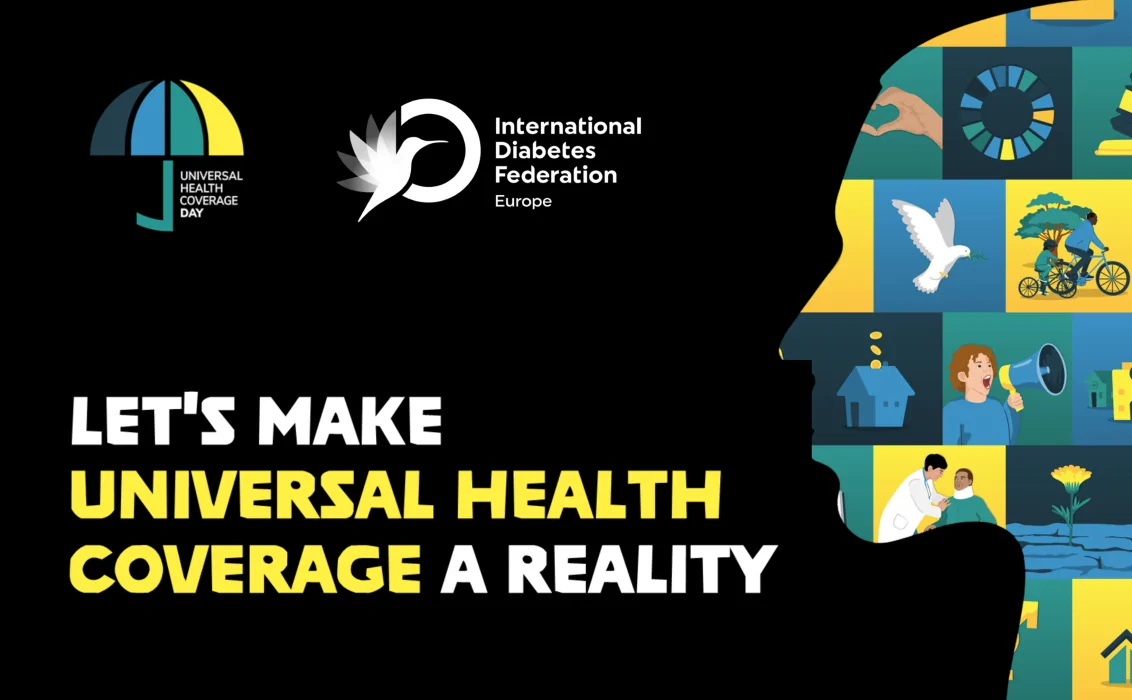Children living with type 1 diabetes are first and foremost children
In Europe, 286.000 children live with type 1 diabetes and 28.100 new cases are diagnosed every year. While insulin was discovered more than 100 years ago, in some European countries children are discriminated as access to diabetes care is still not free nor affordable for many families. This situation can lead to early complications, poor quality of life, struggle to complete education, gainful employment and death.
Today the World celebrates the United Nations Universal Children’s Day, a day dedicated to promoting the well-being and human rights of the world’s children, especially those suffering the impacts of poverty, armed conflict, discrimination and exploitation. Today, as every other day, IDF Europe would like to remind that government in every European country must take action to ensure that no children die of diabetes. We must remember that children living with type 1 diabetes are first and foremost children. These children should have guaranteed access to insulin, test strips, medical care. In order to thrive, there is also a need to create a positive environment in which they can grow that goes beyond the formal boundaries of the health system. This requires information, education and support so that the child develops in a supportive environment that ensures they are empowered to manage their diabetes on a daily basis.

David, what is the situation of type 1 diabetes in Europe?
Tough question. The IDF Europe Region is so diverse in terms of country health systems, socio-economic situations, etc. that there is not one situation for type 1 diabetes. Access to care and insulin in Europe can probably be subdivided into 3 categories. In the first category are the well-funded health systems, where care is well organised, and insulin is available for free or at a price that the individual can afford. In the second category, one of these two factors is missing. Either the health system is weak and does not have the resources and infrastructure to properly manage type 1 diabetes, or insulin is not provided for free. Finally, the third category is a country where there is both a lack of health system capacity to manage diabetes and insulin is not available and/or affordable.
As you know, type 1 diabetes is a complex condition that requires both access to medicine and care to ensure successful management. For those living in countries in both categories two and three mentioned here, diabetes management becomes even more difficult to achieve and often comes with a substantial financial, emotional and physical burden on the individual and their families. That said even in well-developed and funded health systems certain vulnerable groups may face difficulties accessing care.
Children living with type 1 diabetes do best when they have access to well-developed paediatric services that are staffed with doctors, nurses and other health professionals, creating a protected environment for the child with type 1 diabetes. This already exists in many countries in Europe. This Universal Children Day the IDF should guarantee this in all its Member countries, but also not forget that children become adolescents and then adults and that we need to ensure proper diabetes care throughout the individual’s life course.
Access to basic need such as insulin and strips is still a major issue in some countries in Europe. How do you explain this situation?
I would say that there is both a global and national responsibility for this situation. Globally, the power of the insulin and test strip manufacturers is such that they can charge high prices for these products, and thus limit access of these medicines and supplies to health systems and individuals. For insulin, it is unbelievable that a medicine discovered in 1921 is still not globally affordable and/or available to all who need it. Similarly, the price of test strips is a problem in many settings, in some cases, their prices are even higher than that of insulin. In addition, frequent updates to glucometers and their test strips mean people have to keep up with these changes and sometimes have problems finding the right strips in their country.
At a national level, some governments in Europe still do not cover insulin and/or test strips. With regards to insulin though there is no debate as it is a life or death situation for a person with type 1 diabetes. The issue of strips is complex due to their high price. Some countries limit the number of strip reimbursed, others do not cover this aspect of diabetes care. Whether or not governments should pay for this aspect of diabetes management is a large debate.
This is what we are studying with the ACCISS led by Health Interaction International: understand of what is causing the barriers to insulin access so inequities and inefficiencies in the global insulin market can be addressed. http://haiweb.org/what-we-do/acciss/about-acciss/
ACCISS is a really interesting programme. What can be done to improve these situations?
Globally, the diabetes community should continue to get informed and raise awareness around these issues, to ensure that the basic treatment needs of those living with type 1 diabetes are provided. In Europe, people in countries who are lucky enough to receive great treatment and care must stand together with those in other parts of the continent and the world that struggle with access to even the basic levels of care. Nationally, the IDF and its members have as their duty to hold governments to account. This means that national diabetes associations need to represent the interests of people with diabetes and ensure that they have access to insulin and care.
Universal Health Coverage is one of the main target of the Sustainable Development Goals of the United Nations. Is it the solution?
Universal Health Coverage can limit the financial burden of diabetes, as long as diabetes is included in the package of services covered. I think that moving towards Universal Health Coverage is the solution, but it is not a magic bullet. There are three other actions that must be taken in parallel to ensure access to diabetes care is sustainable and offers the best possible care for those living with diabetes:
1. Find ways of decreasing the price of insulin
2. Help strengthen the health system for diabetes care
3. Monitor the availability and affordability of insulin for the health system and the individual
Any other information you would like to include
For more information on type 1 diabetes and children, you can refer to the website of the International Society for Paediatric and Adolescent Diabetes (ISPAD). To support our programme helping children and youth with diabetes in Europe and worldwide, please refer to IDF Life for a child website. For more information on the ACCISS study please visit: http://www.haiweb.org/ACCISS.htm



